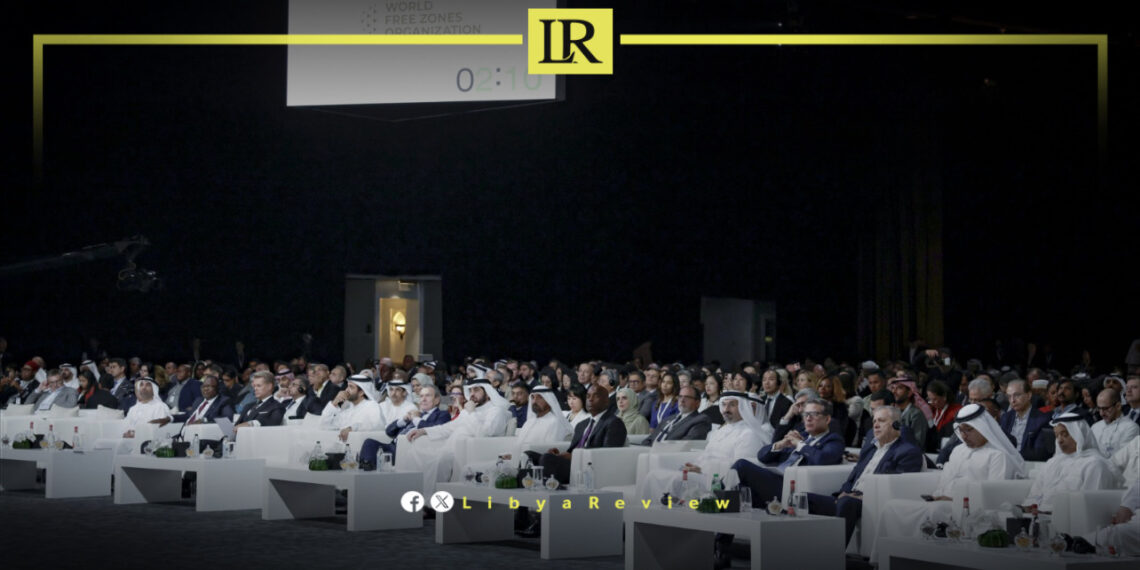A delegation from the Libyan Ministry of Economy participated in the 10th Annual International Conference of the World Free Zones Organisation, hosted in Dubai from September 23 to 25, 2024.
The conference theme, “Economic Zones and Changing Global Economic Structures – Exploring New Investment Horizons,” was attended by prominent figures including Sheikh Ahmed bin Mohammed bin Rashid Al Maktoum, Deputy Ruler of Dubai and Chairman of the Dubai Media Council, along with various ministers and officials from the Dubai region.
Nouri Qatati, Deputy Minister for Free Zones Affairs at the Libyan Ministry of Economy and Trade, represented Libya at the conference. The event gathered an elite group of experts, decision-makers in free zones and logistics, as well as investors, entrepreneurs, and academics from around the world.
Over 136 countries were represented, alongside more than 2,000 global and regional business leaders, free zone authorities, and representatives from numerous international organizations.
On the sidelines of the conference, several meetings highlighted the World Free Zones Organization’s role in bolstering the global economy. Mr. Qatati discussed the strategic role Libyan free zones play in Mediterranean trade and transit commerce to Africa, as well as ways to enhance investment across various economic sectors.
He also emphasized the importance of the organization’s support in developing Libyan free zones and exploring the benefits of joining the organization to boost economic diversity in Libya.
Libya has been in chaos since a NATO-backed uprising toppled longtime leader Muammar Gaddafi in 2011. The county has for years been split between rival administrations.
Libya’s economy, heavily reliant on oil, has suffered due to the ongoing conflict. The instability has led to fluctuations in oil production and prices, impacting the global oil market and Libya’s economy.
The conflict has led to a significant humanitarian crisis in Libya, with thousands of people killed, and many more displaced. Migrants and refugees using Libya as a transit point to Europe have also faced dire conditions.
The planned elections for December 2021 were delayed due to disagreements over election laws and the eligibility of certain candidates. This delay has raised concerns about the feasibility of a peaceful political transition.
Despite the ceasefire, security remains a significant concern with sporadic fighting and the presence of mercenaries and foreign fighters. The unification of the military and the removal of foreign forces are crucial challenges.


